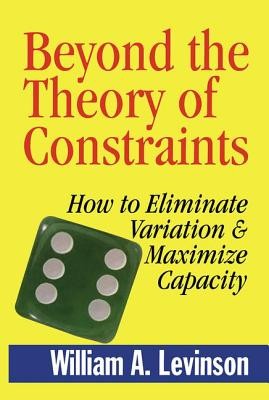
- We will send in 10–14 business days.
- Author: William A Levinson
- Publisher: Productivity Press
- Year: 2007
- Pages: 168
- ISBN-10: 1563273705
- ISBN-13: 9781563273704
- Format: 16.2 x 22.9 x 1.4 cm, hardcover
- Language: English
- SAVE -10% with code: EXTRA
Reviews
Description
The basic principle of the Theory of Constraints (TOC) is the impossibility of running a balanced factory at 100 percent capacity. Variation in processing and material transfer times is the root cause of longer cycle times and higher inventories, which can hinder the ability to run a factory at full capacity.
In Beyond the Theory of Constraints, William Levinson challenges this basic principle by stating that variation in processing and material transfer times comes from special or assignable causes that can be eliminated through traditional quality management techniques. Even random or common-cause variation can be suppressed through lean manufacturing methods.
This compelling book:
This book will teach business executives, managers, and technical professionals, including quality and manufacturing engineers, how to identify and remove variations and maximize capacity to achieve bottom-line results.
EXTRA 10 % discount with code: EXTRA
The promotion ends in 19d.22:58:22
The discount code is valid when purchasing from 10 €. Discounts do not stack.
- Author: William A Levinson
- Publisher: Productivity Press
- Year: 2007
- Pages: 168
- ISBN-10: 1563273705
- ISBN-13: 9781563273704
- Format: 16.2 x 22.9 x 1.4 cm, hardcover
- Language: English English
The basic principle of the Theory of Constraints (TOC) is the impossibility of running a balanced factory at 100 percent capacity. Variation in processing and material transfer times is the root cause of longer cycle times and higher inventories, which can hinder the ability to run a factory at full capacity.
In Beyond the Theory of Constraints, William Levinson challenges this basic principle by stating that variation in processing and material transfer times comes from special or assignable causes that can be eliminated through traditional quality management techniques. Even random or common-cause variation can be suppressed through lean manufacturing methods.
This compelling book:
This book will teach business executives, managers, and technical professionals, including quality and manufacturing engineers, how to identify and remove variations and maximize capacity to achieve bottom-line results.


Reviews